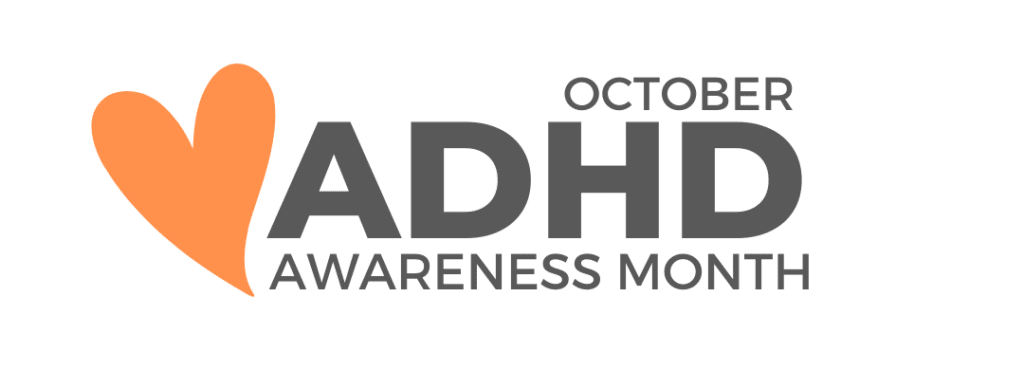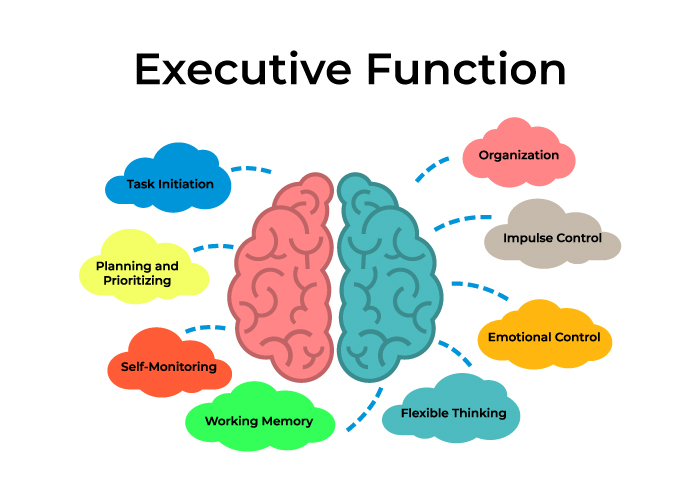
October 2020 – ADHD Awareness Month
Attention deficit hyperactivity disorder (ADHD) is a condition that affects about ten percent of children and around five percent of adults in the United States. ADHD is the most commonly diagnosed neurodiversity in children that challenges a child to learn, stay organized, control impulses, and maintain positive relationships.
ADHD through Neurodiversity Lenses
However, according to the neurodiversity concept, the brains of neurodiverse people work differently.
Research has shown that children, teens, and adults with ADHD and ADD (attention deficit disorder) show differences in brain development and activity that affect their attention, self-control, impulsivity, and the ability to focus and stay still. ADHD causes a child to struggle with poor grades, low self-esteem, and self-management.
Children and adults with ADHD have lower dopamine levels. Dopamine is a hormone and neurotransmitter that helps control reward and pleasure centers in the brain. It also regulates emotional response and movement, so lower levers of dopamine limit the brain’s ability to recognize rewards and stay motivated.
Therefore, children and adults with ADHD have trouble staying focused, following directions, and controlling their impulses, so others tend to see them as “out of control.”
ADHD and Executive Function

Academic success relies on strong executive skills such as attention, memory, cognitive flexibility, and cognitive control. Research shows that executive functions are impaired in children and adults with ADHD.
Namely, executive functions in children with ADHD mature more slowly than in their peers. Also, the part of the brain that motivates us to work on repetitive and boring tasks has a reduced number of dopamine receptors and transmitters in kids with ADHD.
Immature executive functions impair the child’s ability to keep up positive relationships, tolerate frustration, control impulses, and set goals.
ADHD Strengths
However, studies show that ADHD may have its benefits as well. According to Dr. Ned Hollowell, an ADHD expert, ADHD brains are “powerful but difficult to control rake a race car with bicycle brakes.”

In one study, a group of people with ADHD demonstrated greater innovation and creativity levels in performing specific tasks than individuals without ADHD.
Children and adults with ADHD are spontaneous and have endless energy that can be positively channeled. They are creative and inventive and can hyper-focus on the tasks or ideas they are interested in.
However, children with ADHD need routine and structure in everyday life. With clear boundaries that remove distractions and a lot of encouragement and support, children with ADHD can thrive.
Life without Treatment
If you were diagnosed with ADHD as a child, you might have carried it into adulthood. ADHD symptoms can cause problems in managing your day-to-day tasks, relationships, and career. Long-term risks of not addressing weak cognitive skills associated with ADHD can impact your academic success and professional life.

A poor executive function may make it hard to prioritize and plan. You may struggle to meet the demands of your daily life. Your impulsiveness and lack of emotional control can range from impatience to anger outbursts. At the same time, your inattentiveness may be mistaken for anxiety, mood disorders, or other mental health condition.
Moreover, untreated ADHD has been linked to life challenges such as unemployment, divorce, substance abuse, bankruptcy, and chronic health problems.
Life with ADHD Treatment

Diagnosis is the beginning of a better life. It allows you to get the proper treatment to improve your attention and learn how to control impulsive behavior. Therapy helps remove limits, mental blocks, and confusion caused by ADHD. Besides, ADHD treatment can boost your self-esteem and help improve your relationships, excel in your career, live healthier, and improve your life quality.
How to Get Treatment and Diagnosis?
If you believe you may have ADHD and would like to start creating a plan, you can use our online platform, available 24/7, to receive an evaluation for yourself or your child. Our assessment also includes screening for anxiety and depression, all provided by a doctorate-level psychologist, so that you can begin working on treatment with your doctor immediately.






